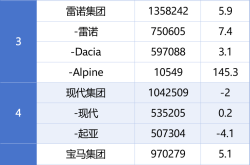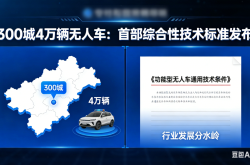Comprehensive endurance over 2000km, Geely's new hybrid directly targets BYD?
![]() 10/05 2024
10/05 2024
![]() 533
533
BYD hybrid gains another formidable competitor.
Remember when BYD unveiled its fifth-generation DM-i hybrid system, the 2000km comprehensive endurance range shocked the automotive industry and sparked dissatisfaction among competitors. At that time, Geely Automobile Group was the first to step forward and present a product certification, stating that Geely's Thor engine had received authoritative certification from the China Automotive Technology and Research Center (CATARC) in 2023, with a maximum thermal efficiency of 46.1%, the highest globally.
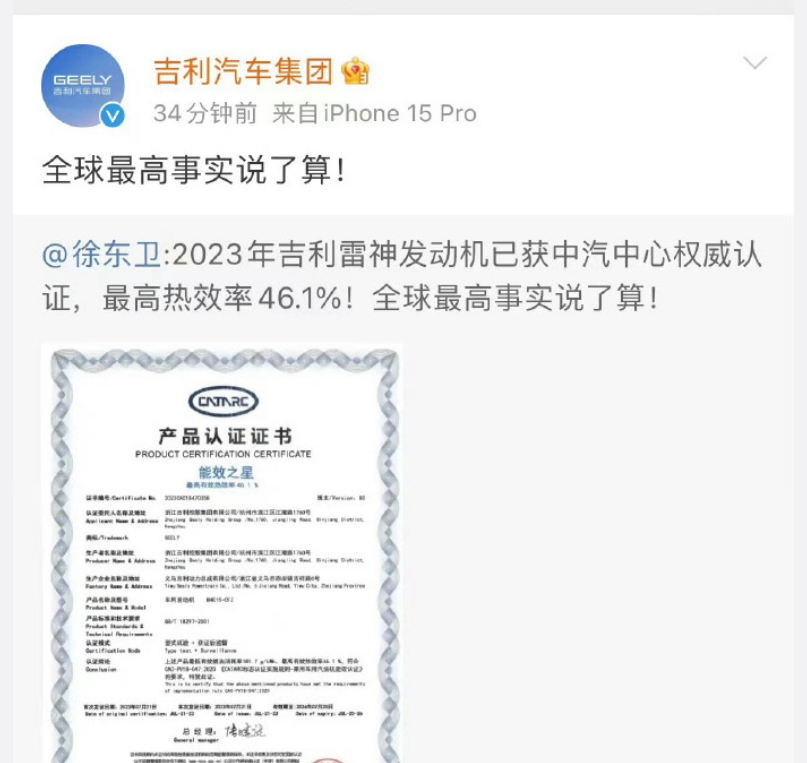
No one expected BYD to have an ace up its sleeve, presenting a CATARC product certification for an engine with a thermal efficiency of 46.5%, determined to compete for supremacy.
Rewinding the timeline, Guangzhou Automobile Group announced on April 8, 2024, that it had achieved a significant breakthrough in engine thermal efficiency, with multi-cylinder engine thermal efficiency exceeding 46%. Dongfeng, on March 30, 2024, unveiled the engine used in its latest hybrid system, "Max Power," boasting a thermal efficiency of 45.18%.
This battle over thermal efficiency has garnered significant attention for several hybrid systems, and anticipation is growing for what new technology Geely will bring to the table to counter its competitors.
At the 2024 World New Energy Congress, Geely Automobile Group CEO Gan Jiayue showcased Geely's latest achievements in intelligent electrification, introducing the all-new Thor hybrid technology, with an engine thermal efficiency of up to 46%. Vehicles equipped with this technology can achieve a comprehensive endurance range of over 2000km when fully fueled and charged, with the lowest power-off fuel consumption entering the "2L era."
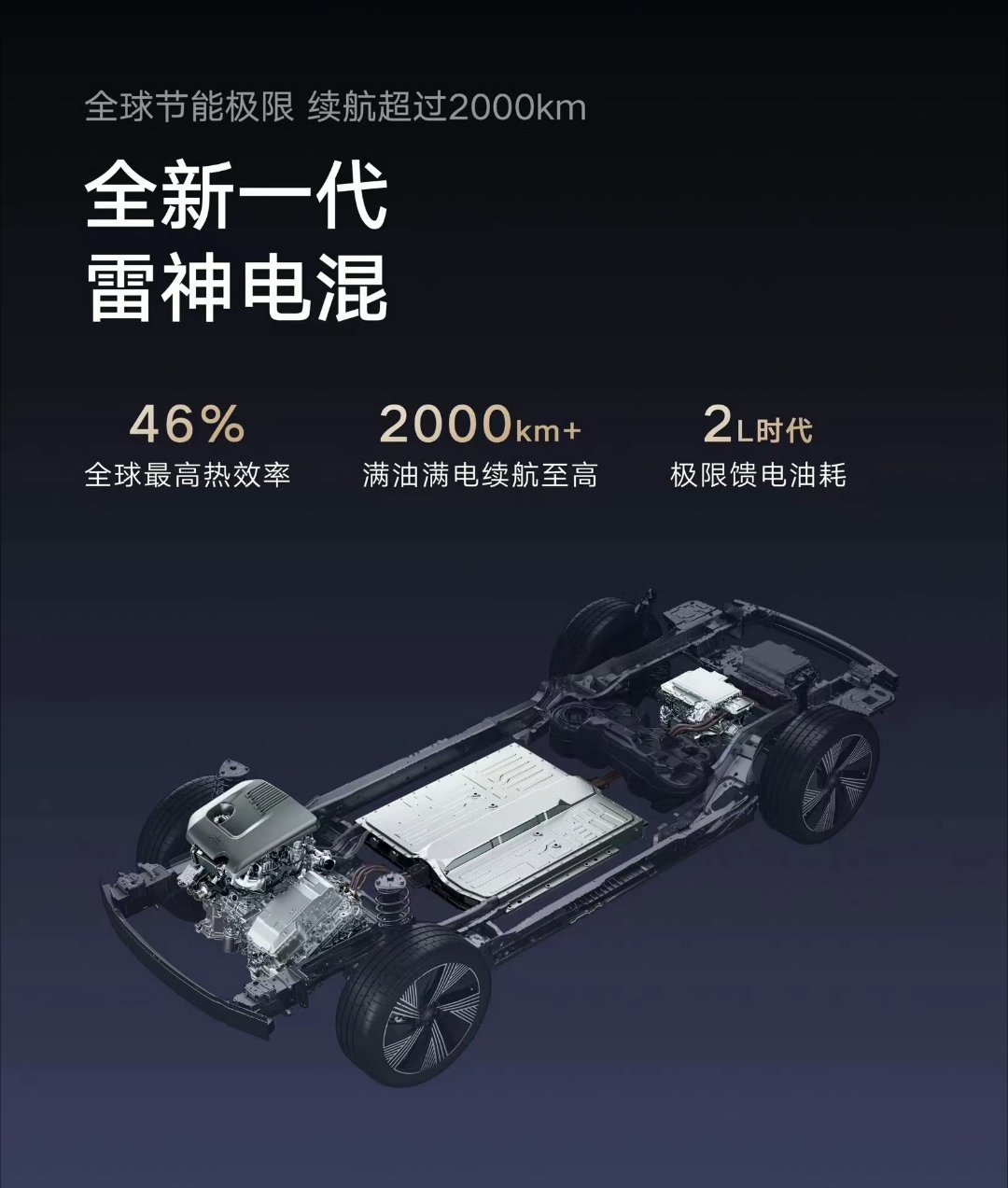
The all-new Thor Super Hybrid technology will be launched this year. Geely, which previously competed with authoritative certifications, is now officially taking a seat at the table to face off directly with BYD.
More energy-efficient plug-in hybrid systems, automakers are scrutinizing every detail
Geely's all-new Thor Super Hybrid introduces three key indicators: engine thermal efficiency of 46%, power-off fuel consumption starting with "2," and comprehensive endurance range over 2000km when fully fueled and charged. Clearly, these targets are aimed directly at BYD's fifth-generation DM-i system.

Manufacturers emphasize engine thermal efficiency because it is related to fuel economy. As a crucial component of hybrid systems, the intelligence of operating conditions, power conversion efficiency, and the integration of dual power systems all impact ultimate fuel consumption.
It is well-known that manufacturers' engine thermal efficiency data represents the maximum value under ideal operating conditions. In reality, thermal efficiency varies within a range, depending on different operating scenarios.
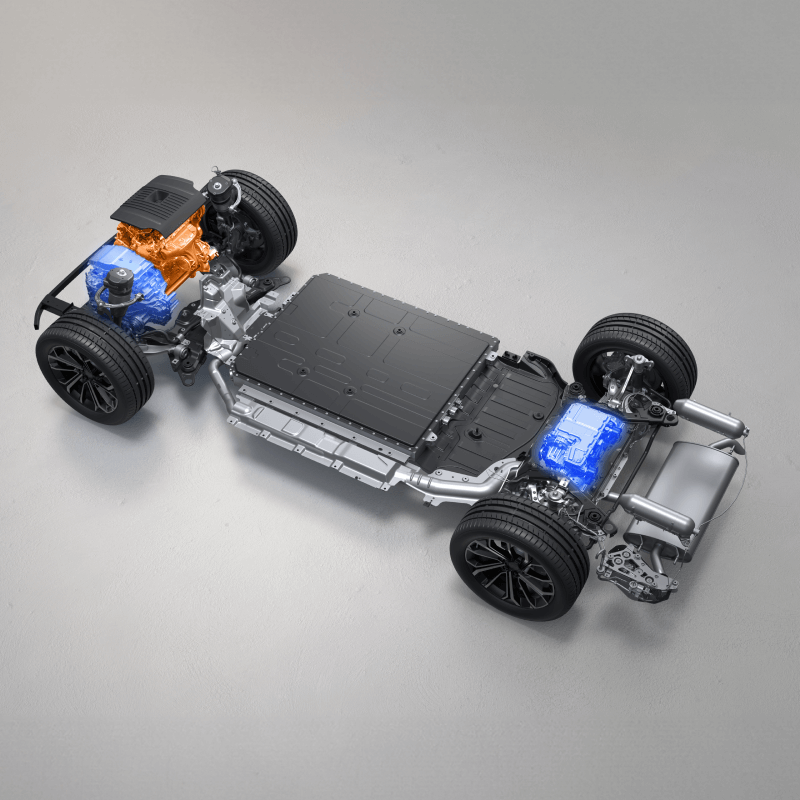
Traditional gasoline engines frequently fluctuate in speed and operate under unstable conditions, resulting in variable thermal efficiency. Whether the efficiency is sufficient depends on the driver's proficiency in managing vehicle operating conditions. In contrast, hybrid systems, aided by electric drive systems, enable engines to operate within a range of higher thermal efficiency, contributing to fuel economy and efficiency.
By controlling engine operation within an ideal range, hybrid systems have an inherent advantage. Extended-range hybrids, in particular, operate their engines at a constant speed for power generation, without direct drive intervention.
Automakers often mention another technical aspect when discussing engines: compression ratio. Simply put, a higher compression ratio improves engine thermal efficiency, increases power output, and reduces emissions and fuel consumption. However, a higher compression ratio can also increase the risk of knocking and necessitates higher-quality fuel, with some hybrid models requiring 95-octane gasoline.
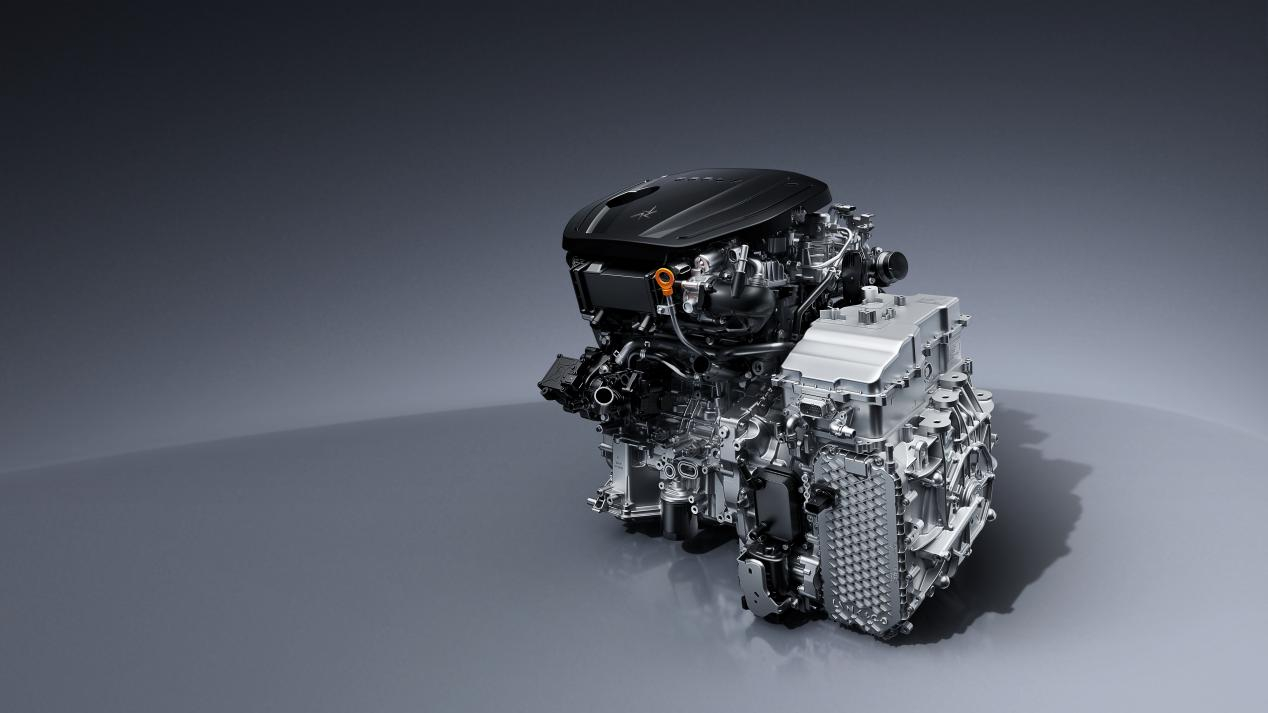
However, PHEV (Plug-in Hybrid Electric Vehicle) technology requires engine coupling with the wheels for direct drive, making its structure more complex. Typically, only traditional brands with engine technology can develop such systems. The Thor Super Hybrid is likely to appear in brands like Geely and Geely Galaxy, given that premium products like Zeekr and Lynk & Co. follow their unique technical routes.
The refinement of Geely's new-generation Thor Super Hybrid likely involves multiple details, such as compression ratio and cycle structure. As internal combustion engine efficiency nears its limit, marginal gains become increasingly significant. To enhance fuel economy, automakers must scrutinize every detail and push thermal efficiency even higher.
Low fuel consumption also necessitates the cooperation of the trinity of electric systems (battery, motor, and controller). Geely has previously unveiled the world's first voltage platform covering 0-1200V, a drive motor with a maximum speed of 30,000 rpm, and the Shendun Blade Battery first used in the Galaxy E5, boasting an energy density of 192Wh/kg, an average charging rate of 2.45C, and advantages in size and structure over traditional batteries.
An electric drive system with higher integration and superior energy consumption control naturally reduces engine intervention frequency, contributing to greater fuel economy.
Geely boasts robust technical reserves in the new energy sector, with many leading advancements. Hybrid power is currently the fastest-growing segment in the new energy field, naturally becoming the most competitive arena. Fortunately, Geely isn't just flaunting authoritative certifications; it's bringing mass-production technologies to the forefront, fostering competition and expanding consumer choices.
Plug-in hybrid competition intensifies; reputation trumps technology
After BYD opened the door to 2000km comprehensive endurance, major automakers have followed suit. The industry is not short of excellent plug-in hybrid solutions with ultra-long endurance. In addition to Geely's all-new Thor Super Hybrid, Chery Automobile has also applied its latest C-DM hybrid system to mass-produced models, successfully verifying a 2000km endurance range through live tests.
Geely Group's strategy extends beyond the Thor Hybrid, with Lynk & Co.'s EM-P Super Extended Range Technology also standing out in the industry.
With so many options available, why is BYD's DM-i system the most representative? It's not that other solutions lack technical prowess but rather that they lack a defining label etched into consumers' minds. The simplest example: When people unfamiliar with cars mention plug-in hybrids, their first thought is often BYD or Toyota.
All these systems can achieve 2000km endurance and low fuel consumption, with similar technical specifications and user experiences. Consumers, often unaware of the underlying technical details, tend to favor more recognizable solutions when capabilities are comparable.
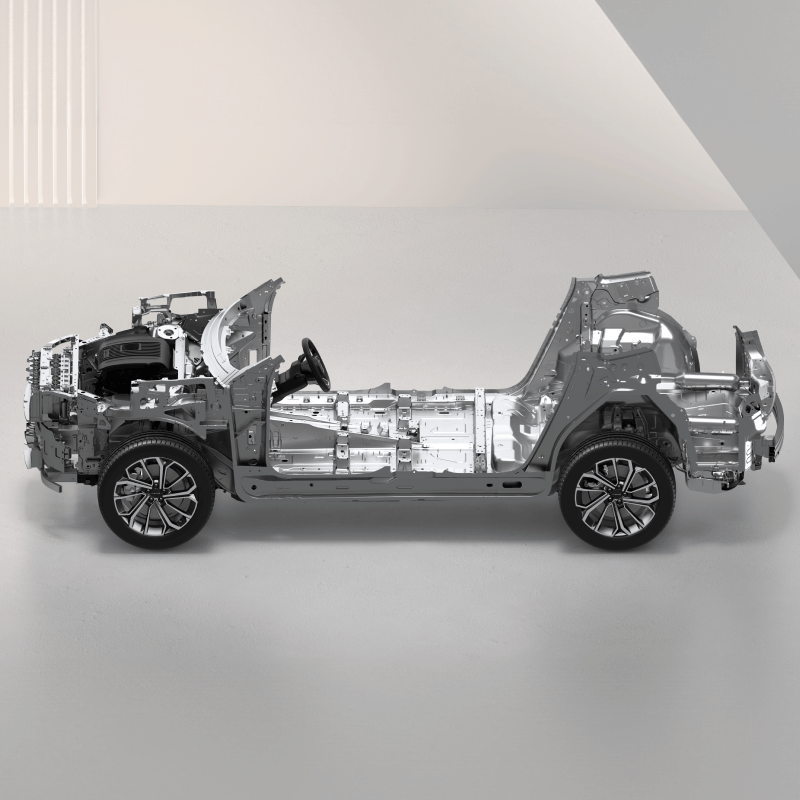
BYD was one of the earliest domestic automakers to venture into plug-in hybrids, with a long history of powertrain iterations and a vast user base, earning widespread praise. The 2000km endurance range has reignited market confidence in BYD hybrids, giving it a significant first-mover advantage. With over 300,000 monthly sales, the economical DM-i hybrid has played a pivotal role.
In other words, the plug-in hybrid market has shifted from a technical competition to a battle for consumer perception, unless groundbreaking technology emerges to elevate endurance to new heights. Currently, BYD's barriers in plug-in hybrid technology and consumer perception are not easily breached. While Geely diligently advances its technology, it also needs hit models to deepen consumers' impression of the Thor Hybrid.
Automakers shouldn't lose heart. Excellent iterative technologies first expand choice, avoiding monopoly by a single brand. A vibrant automotive market with multiple parallel solutions is desirable. Automakers should consider and experiment with different yet equally effective routes, creating differentiation and enhancing reputation.
Plug-in hybrids dominate, but pure electric remains the ultimate direction
The new energy vehicle market is leaning towards hybrids, with relatively more resources invested in product layouts. Many emerging automakers initially focused on pure electric vehicles have quickly added fuel tanks and range extenders to attract new customers. Consumers value the flexibility of plug-in hybrids. During national holidays, long queues at charging stations are a common sight, making additional fuel tanks a reassurance.
According to the China Association of Automobile Manufacturers, sales of plug-in hybrid vehicles in July 2024 surged 80.7% year-on-year, far outpacing the 2.6% growth of pure electric vehicles.
Plug-in hybrids will dominate the market for years to come, validated by sales figures from brands like Lixiang and Wenjie, which have leveraged range-extender vehicles to boost sales. The allure is undeniable, with emerging automakers like Xpeng and Zeekr gradually unveiling their range-extender product layouts.
Does the influx of hybrids signal the end for pure electric power? Not necessarily. The market's ultimate direction is towards pure electric vehicles. Hybrids are a transitional technology bridging the gap between gasoline and new energy, addressing pain points of both. Slowing growth in pure electric vehicles stems from inadequate charging infrastructure, exaggerated endurance claims, and inflexible refueling. For those with only one car, hybrids are currently the optimal choice.
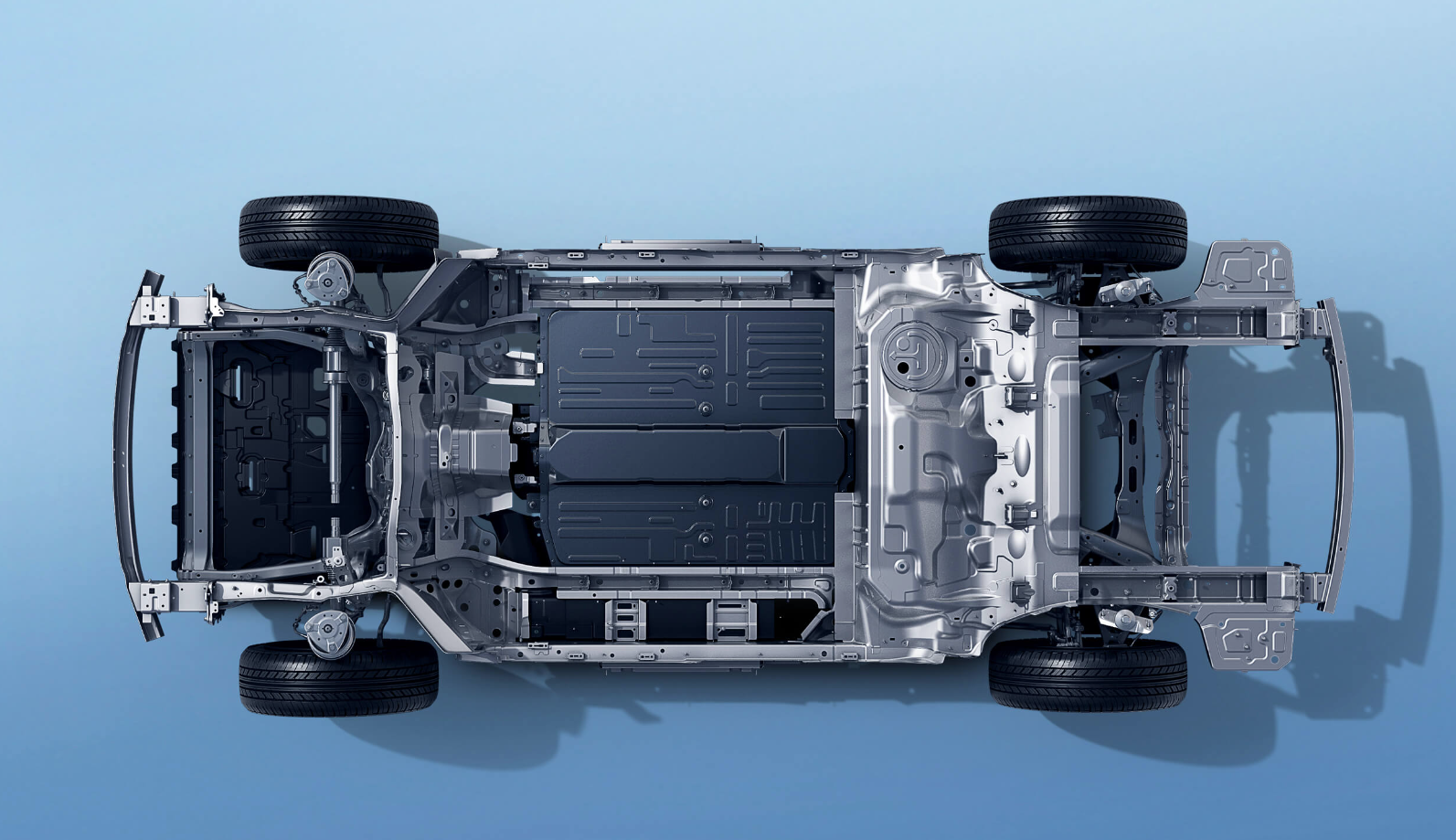
While the plug-in hybrid trend may wane, pure electric vehicle growth will explode at some point. Brands like Lixiang are quietly expanding their pure electric product lines. Even if gasoline vehicles don't disappear, most of their market share will shift to new energy vehicles, necessitating a shift in consumer perception and the improvement of refueling networks.
Pure electric vehicle growth is a future prospect, while hybrids remain the market's darling. It remains to be seen how Geely's new-generation Thor Hybrid will perform.
Source: Leitech







